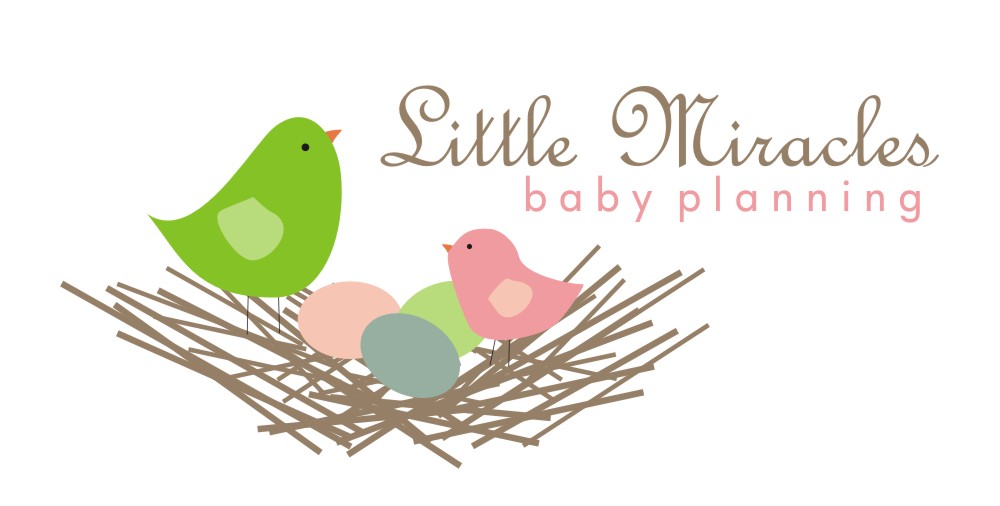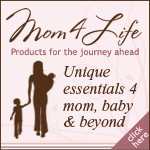Tips to Beat Morning Sickness
By Kristin EricksonApproximately three-quarters of pregnant women suffer from morning sickness. It usually starts in the fifth to seventh week of pregnancy and disappears about six weeks later. But, as you probably know, it can't disappear fast enough. The two main culprits for morning sickness are extreme swings in blood sugar levels, which tend to be lowest in the morning, and hormones, which run rampant during pregnancy. To help minimize or avoid feeling queasy, eat small, frequent meals high in protein and fiber (they take longer to digest), get plenty of rest, keep snack foods with you at all times, drink plenty of water, and get plenty of fresh air and exercise. If your symptoms are severe (you can't keep anything down for longer than one hour), call your obstetrician or visit an emergency room. You can become quickly dehydrated and may require an IV to replace fluids lost during vomiting.
Buying Baby a Bed
By Debbie DavisYour baby's crib is one of the most important furniture purchases you can make. You and your baby are relying on its safety, comfort, and security, to get the whole family a good night's sleep. Barry Gevertz, owner of Lullaby Lane in San Bruno, California, has been teaching classes in selecting baby equipment and furniture for the past twenty-three years. "There are eight basic safety features that each crib should have," says Gevertz.
*The slats should be no more than 2-3/8 inches apart.
*The corner posts should be no higher than 1/6 inch above the railing of the crib so that your baby's clothes cannot get caught.
*There should be no decorative cutouts large enough for your child's head to get stuck in.
*There should be no more than a two-finger width between the sides of the mattress and the crib.
*The mattress support should be firmly attached at both the headboard and footboard.
*The accident-proof, drop-side mechanism should impossible for your child to release.
*All the appropriate screws and bolts should be present and fit tightly.
*The finish, whether paint or stain, should be nontoxic.
If you're assembling the crib yourself, follow the directions very carefully. Your baby's safety is in your hands. If you have any safety concerns about the crib you purchased, or any other furniture or supplies you and your baby depend on, contact the U.S. Consumer Product Safety Commission hotline at 1-800-638-2772 or visit www.cpsc.gov.
Comprehensive Newborn Screening
You may have heard about the heel-stick test that babies receive in the hospital after they are born. This is an important screening because it detects genetic illnesses that can cause mental retardation, nerve damage, or even death if they are not diagnosed and treated early. Unfortunately, out of the four million babies born each year in the United States, a mere 10 percent received adequate comprehensive newborn screening. That's because each state sets its own guidelines for what should be included in the screening test. For example, babies born in North Carolina will be screened for more than thirty disorders, whereas babies born in Texas will be screened for only five disorders.Check with your pediatrician or hospital to learn more about what is included in your state's screening program. If the number is less than thirty, consider purchasing expanded screening from Baylor University (www.baylorhealth.com/ newbornscreening). They will send you everything you need for the screening. When your doctor performs the usual heel-stick test required in every state, he or she will collect an additional sample that will be sent to Baylor's lab.
For more information about comprehensive newborn screening, visit www.savebabies.org
Benefits of Breast Feeding
By Kristin EricksonBreast-feeding is a natural option for feeding your baby, but it doesn’t always come naturally. Like standing, walking, and talking, it is something we learn with practice. Fortunately, babies give their mothers time to learn because their need for food in their first days is minimal. Even if you find that breast-feeding is difficult at first, it is certainly worth learning how to give this precious gift to your baby. Breast-feeding is a benefit that will last for a lifetime—for both of you.
Breast milk is the perfect combination of protein, carbohydrates, and fat, as well as antibodies and amino acids for your baby’s digestion, brain development, and growth. It bolsters your baby’s immune system and protects her from bacteria, fungi, and viruses. In fact, babies who are breast-fed are less likely to suffer from stomach infections, diarrhea, colds, flu, and urinary tract problems.
• Get protection from bronchitis, pneumonia, asthma, and allergies.
• Are less likely to develop insulin dependent diabetes, some lymphomas, ulcerative colitis, Crohn’s disease, and breast and ovarian cancers.
• Breast-feeding is an investment in your baby’s health and in your peace of mind. But your baby isn’t the only one who benefits from breast-feeding.
Mothers who breast-feed:
* Are half as likely to get premenopausal breast cancer.
* Are at a lower risk for ovarian cancer and osteoporosis.
* Lose weight much more quickly.
* Don’t have to bother with measuring and mixing formula (and it’s less expensive).
Breast-feeding also forces you to take care of yourself following your baby’s delivery. You need to get plenty of rest and continue to eat for two, consuming well-balanced meals and an extra 500 calories a day for your baby. By eating enough calories, you can be certain that other nutrients are met as well, including vitamins, minerals, and protein. As long as you eat a balanced diet, the only supplement you may need is iron. Frequently, mothers continue their prenatal vitamins while breast-feeding. You should continue to avoid some of the things you missed in pregnancy: caffeine, alcohol, and other toxins, as well as anything that seems to inspire fussiness in your baby after feedings, like a spicy meal.
Expect to nurse every hour and a half to two hours for about ten minutes on each side. You may be nursing as often as eight or twelve times a day because your baby will digest breast milk within an hour and a half. If you are concerned about your milk supply, you can keep track of how many wet diapers your baby has. During the first two or three days, your baby will wet only one or two diapers per day. Once your milk is more plentiful (approximately the third day), your baby should have six to eight wet diapers per day. A breast-fed baby will have at least two to five bowel movements every twenty four hours. This pattern will continue if you exclusively breast-feed.
You should stop breast-feeding your baby when you, or your baby, decide that it’s time. The American Academy of Pediatrics recommends breast-feeding for at least the baby’s first year of life, but you and your baby will be able to figure out what works best for the two of you.
10 Top Pregnancy Web Sites
Not every expectant mom has time to sort through a zillion websites to look for something useful. So, we did the searching for you. For some of the best pregnancy-related websites, click here:PregnancyWeekly.com
PregnancyWeekly™ offers a "smart" weekly e-newsletter that is customized just for you. Enter your due date as well as a few other details about yourself and you'll get an individualized, week-by-week report about your baby's development, important reminders for your next doctor visit, and more. Even chat with other soon-to-be moms at the site's message boards.
------------------------------------------------------------------------
BabyCenter.com
BabyCenter® supports parents through the journey of parenthood with a blend of expert advice and user-created wisdom. They offer trustworthy, medical advisory board-approved information and real-world, parent-to-parent tips from pre-conception through age eight. Their goal is to increase the enjoyment of parenting and remove some of the guilt and worry by providing a full and balanced picture of raising a child, leaving the decision making to the parents.
------------------------------------------------------------------------
AskDrSears.com
Learn about your pregnancy, baby, and family health issues from America's family of pediatricians.
------------------------------------------------------------------------
CordBlood.com
Cord Blood Registry® is the world's largest and most experienced family umbilical cord blood stem cell bank. By banking your baby's umbilical cord blood stem cells, your child and family can have access to better options for medical treatments or cures for cancers, as well as possible future treatments for conditions such as heart disease, juvenile diabetes, and brain injury.
------------------------------------------------------------------------
Fit Pregnancy.com
Fit Pregnancy® addresses your concerns about how to stay healthy, eat right and look great while expecting and how to get back into shape after delivering. They also offer the essentials for new parenting and infant care through baby's first year.
------------------------------------------------------------------------
WebMD.com
WebMD® provides valuable pregnancy information, tools for managing your health, and support to those who seek information. You can trust that their content is timely and credible.
------------------------------------------------------------------------
WomensHealth.gov
The National Women’s Health Information Center’s website is billed as "the resource you can trust." It is a branch of the U.S. Department of Health and Human Services and is filled with valuable information and tools for all aspects of a healthy pregnancy, childbirth, and breastfeeding.
------------------------------------------------------------------------
Due Maternity.com
Today's maternity isn't about covering up or dressing down. It's about fashion without compromise. Comfort without sacrificing style. And it's all about showing off and letting the whole world know you're pregnant. At Due Maternity® you'll find clothes and accessories you'd wear anywhere, anytime, but designed for this one special time in your life.
------------------------------------------------------------------------
March of Dimes.com
March of Dimes® is the leading nonprofit organization for pregnancy and baby health. They are dedicated to improving the health of babies by preventing birth defects, premature birth, and infant mortality.
------------------------------------------------------------------------
BabyNameCenter.com
Still not sure what to call your new baby? Search through thousands of choices at BabyNameCenter to find the perfect name. You can even search by definition so if you want to bestow "beauty" on your daughter, you can choose Callista, Belinda, or Alana (or about fifty other names).

.png)




1 comment:
If anyone is interested in savings on cord blood banking coupons, check out http://cordbloodregistrydiscountcouponcode.blogspot.com/
$250 OFF, plus a $125 rebate on collection plus a $50 gift card!
Post a Comment